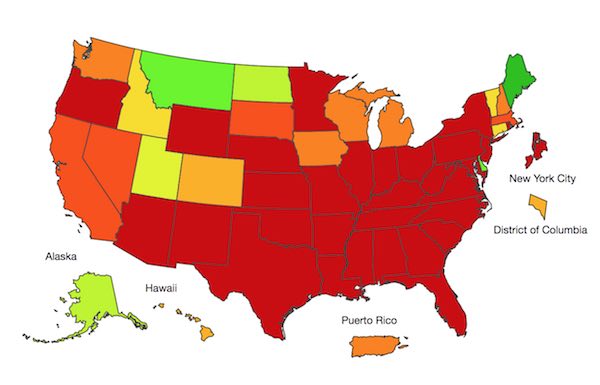SEBASTIAN – The Florida Department of Health in Indian River is reporting a sharp increase in flu activity this week in Sebastian, Fellsmere, Vero Beach, and other areas of the county.
Flu is different from a cold, and usually comes on suddenly. Each year flu viruses cause millions of illnesses, hundreds of thousands of hospital stays and thousands or tens of thousands of deaths in the United States.
Flu can be very dangerous for children. CDC estimates that since 2010, between 7,000 and 26,000 children younger than 5 years have been hospitalized each year in the United
States because of influenza. The flu vaccine is safe and helps protect children from flu.
Indian River County officials say while flu illness can vary from mild to severe, children often need medical care because of flu. Children younger than 5 years and children of any age with certain long-term health problems are at high risk of flu complications like pneumonia, bronchitis, sinus and ear infections.
Common symptoms of influenza include fever, cough, sore throat and body aches. Young children, older people and those with certain health conditions are at especially high risk for serious complications.
Here are some tips to help keep your family safe and healthy:
- Everyone over 6 months of age should get a flu shot…vaccine is available, and it is not too late.
- Wash your hands frequently, and cover your cough.
- Anyone who is sick should stay home until 24 hours after fever is gone – don’t spread the flu virus to others.
- If you or your child is sick with flu-like illness, contact your healthcare provider as soon as possible and follow their guidance on treatment.
- Influenza (also known as flu) is a contagious respiratory illness caused by influenza viruses that infect the nose, throat, and lungs.
Some health problems that are known to make children more vulnerable to flu include asthma, diabetes and disorders of the brain or nervous system.
What can I do if my child gets sick?
Talk to your doctor early if you are worried about your child’s illness. Make sure your child gets plenty of rest and drinks enough fluids.
If your child is 5 years and older without long-term health problems and gets flu symptoms, including a fever and/or cough, consult your doctor as needed.
Children younger than 5 years of age – especially those younger than 2 years – and children with certain long-term health problems (including asthma, diabetes and disorders of the brain or nervous system), are at high risk of serious flu-related complications.
Call your doctor or take your child to the doctor right away if they develop flu symptoms.







